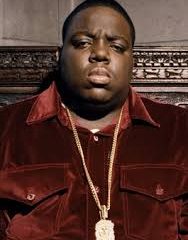The Legacy of Daddy Lumba: A Ghanaian Music Icon
Introduction
Daddy Lumba, one of the most celebrated musicians in Ghana, continues to make waves in the music scene, captivating audiences with his unique blend of highlife and hiplife music. His influence extends beyond just music; he is a cultural icon whose work has shaped the Ghanaian music industry for decades. Understanding his contributions provides insight into the evolution of contemporary Ghanaian music and its cultural significance.
Career Beginnings
Born Charles Kwadwo Fosu on September 29, 1964, in the Ashanti Region of Ghana, Daddy Lumba began his career in the late 1980s. His ascent to fame coincided with a vibrant era for highlife music, where themes of love, life, and societal change dominated the airwaves. His early albums, such as ‘Aben Wo Ha’ and ‘Nkanee’, quickly gained popularity, establishing him as a household name. Lumba’s distinctive voice and engaging lyrics resonated with fans, elevating his status in the Ghanaian music landscape.
Musical Contributions
Throughout his career, Daddy Lumba has released numerous albums, with many achieving commercial success. His music often reflects the socio-political climate of Ghana, providing a voice to the struggles and aspirations of the Ghanaian people. Collaborating with various artists, including prominent figures like Amakye Dede and Kofi B, he has been influential in popularising highlife and helping it evolve with contemporary sounds. His hit songs, such as ‘Odo Beye’, ‘Yaanom’, and ‘Afei De, Afei De’, remain staples in Ghanaian music playlists.
Recent Developments
As of 2023, Daddy Lumba continues to perform and release new music, engaging with both older and younger audiences. His recent performances have received acclaim, drawing large crowds eager to experience his timeless classics and new hits. Additionally, he has embraced social media, allowing him to connect directly with fans and promote his music to a global audience. His enduring legacy is evident as he inspires a new generation of Ghanaian musicians.
Conclusion
Daddy Lumba’s impact on Ghanaian music cannot be overstated. As a pioneer of highlife and hiplife, his contributions have set a foundation for future artists to build upon. His music not only entertains but also carries significant cultural narratives, bridging the past and present of Ghanaian society. Looking ahead, Daddy Lumba remains a significant force in the music industry, with fans and musicians alike eagerly anticipating his next move. His story is a testament to the power of music as a tool for cultural expression and connection.









